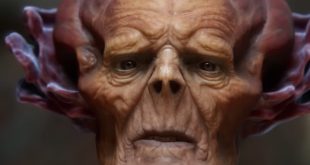Back in November, Rogue Factor released the Early Access version of its most ambitious project yet – Mordheim: City of the Damned, a dark, procedurally generated adventure set in the Warhammer universe.
Drawing inspiration from the tabletop origins of Warhammer, the team dreamed of creating a turn-based tactical game where no two matches are the same, designing a complex series of map and character generators that offer a fresh take on the genre.
“Even though we are a small team, we wanted to make a game with a long lifecycle,” lead programmer and production director Edgar Parente explains. “We developed a procedurally generated map system. It’s not overly complicated, but ends up giving very satisfying results.
Procedural generation even extends to the characters, made up of various combinations of body parts. In order to achieve the vision for Mordheim, the team had to find tech that could handle it.
“We wanted to use an engine with the ability to produce our project quickly, and efficiently,” says Parente. “As a small indie studio, most of us have to wear many hats and become proficient in many aspects of the development pipeline.
“Using a well-built engine would help us minimise the learning curve associated with using a new engine and leave all internal engine development behind to focus on the game.”
Rogue Factor chose Unity for its easy-to-learn interface and development pipeline, as well as the opportunities for multi-platform development and the support of the community.
“That is not to say we didn’t have a steep hill ahead of us when we started and with all the features we wanted to implement,” Parente points out, “but we were able to get something up and running much faster than we would have otherwise, or with another engine.”
When Unity 5 became available, the new engine allowed the team to revamp some of its systems. But while the tech’s creator was shouting from the rooftops about the new physically-based rendering features, Rogue Factor found it was most impressed by something else.
“An unpublicised feature of Unity 5 was the new physics-based cloth system,” says Parente. “Unity previously had a cloth system, but it was quite awkward to use, so we had to build our own one. Now with Unity 5 we switched back to their system.
“Our development was also sped up with the new editor. Not only are we no longer running out of memory since the editor is now a 64-bit application, but saving our scenes and assets takes about 30 seconds, when it used to take 20 minutes.
“With the old editor, we used to crash out of memory several times a day. Now with the 64-bit editor we can work without issues. Being able to save our assets and scenes quickly makes it so we can iterate much faster, and actually fix problems as we find them.”
However, the procedurally generated nature of Mordheim made the transition trickier than expected. While other devs have been able to switch their projects to Unity 5 in a matter of days, Rogue Factor took three weeks. This is largely due to the game’s ambitious scope.
But Parente says Unity has included several features that makes it relatively painless for studios to upgrade: “They will parse your code and make corrections so you don’t have to. All our scripts worked very easily, and the runtime optimisations alone are worth the upgrade.”

 MCV/DEVELOP News, events, research and jobs from the games industry
MCV/DEVELOP News, events, research and jobs from the games industry



